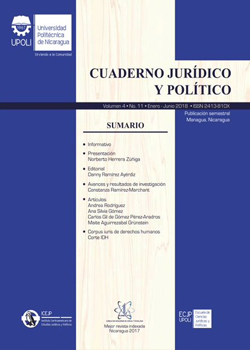Collective autonomy as a presupposition for conflict resolution
DOI:
https://doi.org/10.5377/cuadernojurypol.v4i11.11026Keywords:
Collective conflict, resolution mechanisms, collective autonomy, collective bargainingAbstract
This article analyzes the prerequisites that must exist in democratic systems of labor relations in order to make legally viable mechanisms for the autonomous resolution of labor disputes. In this respect, we will try to show that for these to exist, a favorable context will be necessary in which freedom of association, collective bargaining and the right to strike are recognized and promoted. For the same reason, the reaction of legislation to these phenomena should be one of promotion, since, if it were to act restricting or limiting the scope of these rights, it would end up compressing the capacity of the subjects, thus annihilating the collective autonomy so essential for the self-composition of conflicts of a labor nature. In order to project the approach, a comparative perspective will be approached considering two models of collective labor relations that are antagonistic: Chile and Uruguay.
Downloads
298


 Cuaderno Jurídico y Político es de acceso abierto y permite la reproducción, la distribución y la comunicación pública solo para fines no comerciales
Cuaderno Jurídico y Político es de acceso abierto y permite la reproducción, la distribución y la comunicación pública solo para fines no comerciales 